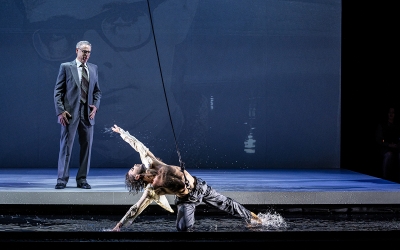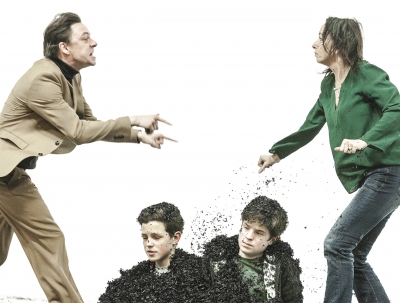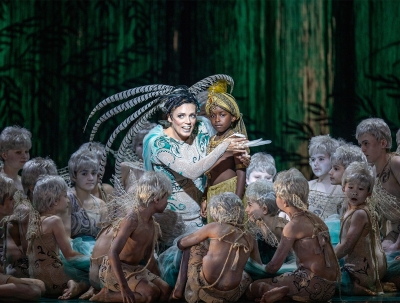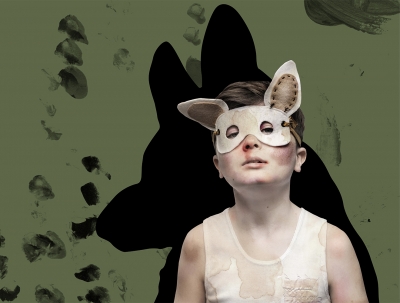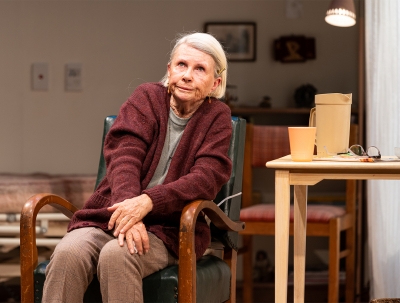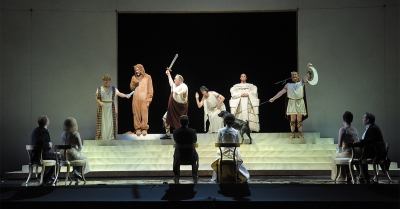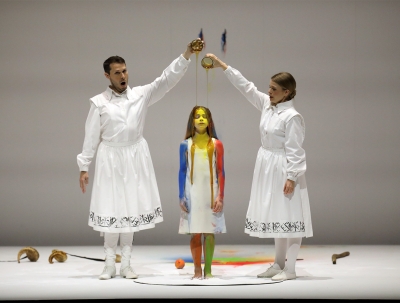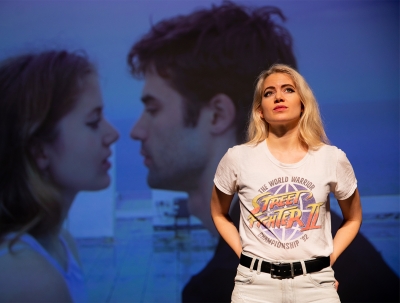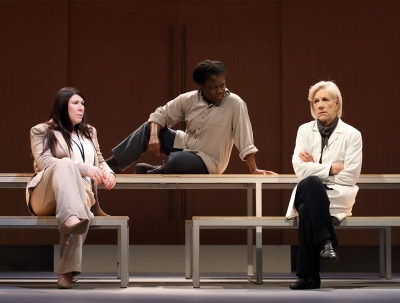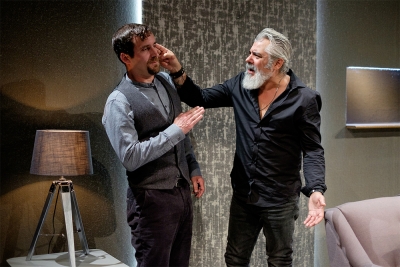Adelaide Festival
Neil Armfield’s production of Watershed – a new oratorio by composer Joe Twist and co-librettists Alana Valentine and Christos Tsolkias about the murder of Ian Duncan by police in Adelaide in 1972 and the subsequent cover-up and campaign for homosexual legal reform – is an angry, brave, beautiful, emotionally shattering, and unexpectedly uplifting work.
... (read more)In her essay on Akon Guode, the thirty-five-year-old South Sudanese refugee who drowned three of her seven children in April 2015, Helen Garner recalls striking up a conversation with a VCE student about Euripides’ Medea. Garner tells the student, ‘She did a terrible, terrible thing. But she was very badly treated. She was betrayed.’ Before she can go on, the student interrupts her, flushing and leaning forward in her seat. ‘But she was – a mother.’ Garner writes of feeling troubled ‘by the finality of the word “mother”, this great thundering archetype with the power to stop the intellect in its tracks.’
... (read more)Comparisons can be odious, odorous, even otiose. Yet while I have lost count of the number of takes on Shakespeare’s play I have seen over the years – theatre, ballet, modern dance, knockabout collages of dance, movement and music, and opera – five stay in the memory. In the order in which I saw them, they are: the first revival at Sadler’s Wells in the mid-1960s of Britten’s 1960 opera, which marked the beginning of James Bowman’s stellar career; Max Reinhardt’s 1935 film; Peter Brook’s version of the play, which redefined it for not just one but several generations; Elijah Moshinsky’s powerfully evocative take on the opera from 1978 (also starring Bowman); and Declan Donnellan’s inspired and laugh-out-loud shaking up of the work for the Donmar Warehouse in the mid-1980s.
... (read more)There is, somewhat surprisingly, a German connection in the otherwise resoundingly Irish The Boy Who Talked to Dogs, the State Theatre Company of South Australia and Slingsby Theatre Company co-production based on Martin McKenna’s memoir about his hardscrabble childhood in 1970s Garryowen. In both the book and the play, adapted by Irish playwright Amy Conroy, we encounter Martin (Bryan Burroughs) as a deeply troubled youth – the ‘smallest, weakest, and scaredest’ of a set of triplets – growing up with German emigrant parents.
... (read more)Who in their right mind would want to be running an international arts festival right now? Two months ago I was slated to review four Adelaide Festival shows for this publication. Due to Covid-19 travel restrictions, two were subsequently cancelled, including Anna Breckon and Nat Randall’s highly anticipated Set Piece. Co-artistic directors Neil Armfield and Rachel Healy must have been harried during the lead-up to the opening weekend, as national borders continued to snap open and shut like the jaws of a capricious crocodile.
... (read more)January 5
We have lost our Hermia, so Sally-Anne Russell comes round to sing for me. She has fished out Benjamin Britten’s Charm of Lullabies and her score of The Rape of Lucretia. We work on both, but particularly on the aria in which poor Lucretia threads together gorgeous lilies into a funeral wreath, her response to what the boastful, ghastly Tarquinius has done to her. Sally-Anne has not sung the opera for twenty-five years, but it sounds as though she’s fresh from recording it, so inside the role is she, so beautiful and rich her voice. I phone Neil Armfield. We have found our Hermia.
... (read more)It may be that some members of the audience at Romeo Castellucci’s highly individual take on, and response to, Mozart’s Requiem, experience something similar. I certainly am aware from conversation (and observation) that some audience members did indeed respond to the stage images with closed eyes. But in doing so they denied themselves the opportunity to see and respond to some of the most evocative, poetic, and, yes, musical images seen on the Festival Theatre stage since Bo Holten’s Operation Orfeo back in the 1990s.
... (read more)In 2000, Mary Beard, the English scholar and classicist, published an autobiographical essay entitled ‘On Rape’ in the London Review of Books. It blazes, not in intensity of tone, but as writing that refuses to tame itself to one palatable or containable narrative. The essay allows for a space wherein questions are asked and there aren’t always answers, at least not ones that make us complacent. Beard professes to not being ‘particularly traumatised by what happened’ to her younger self, admitting that this might be a result of the experience itself having morphed into different iterations as she retold it to both herself and others. These tellings subsequently become ‘interpretations of what went on, which coexist ̶ and compete ̶ with the account’ that she writes in the opening of the piece.
... (read more)No one would maintain that Schnitzler’s original text does not need cutting and shaping for an updated presentation of the issues he was concerned with back in 1912. (One of the drollest observations about Schnitzler’s style comes from Franz Kafka, who noted that ‘it is replete with the quavering hollowness of literary pretensions’, though he was speaking specifically of Schnitzler’s late works.) But a play like Professor Bernhardi is no more nor less overwritten than some of Shaw. Here, at every turn, Icke’s ‘re-imagining’ (and his direction) opts for crude juxtaposition, where Schnitzler’s outlining of the issues can accommodate both subtlety and directness, ambiguity and clarity. And Icke’s simplification is reflected in the performances of most of the actors
... (read more)Ulster American (Traverse Theatre Company/Adelaide Festival) ★★★★★
In the program note for his most recent play, Belfast playwright David Ireland claims that ‘he became a playwright after being unemployed and unemployable as an actor for three years, despite having trained as an actor for three years at the Royal Scottish Academy of Music and Drama ...
... (read more)
